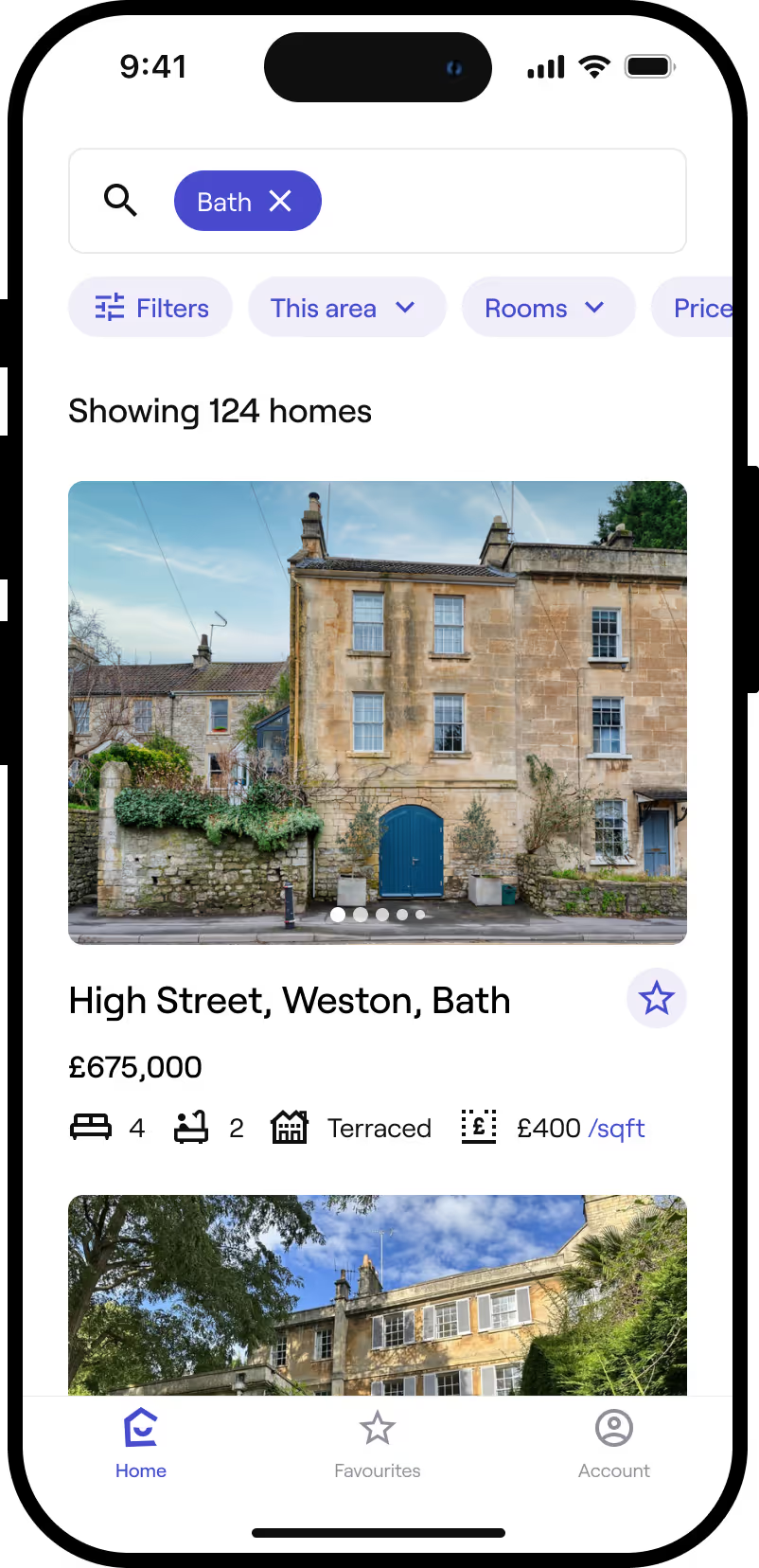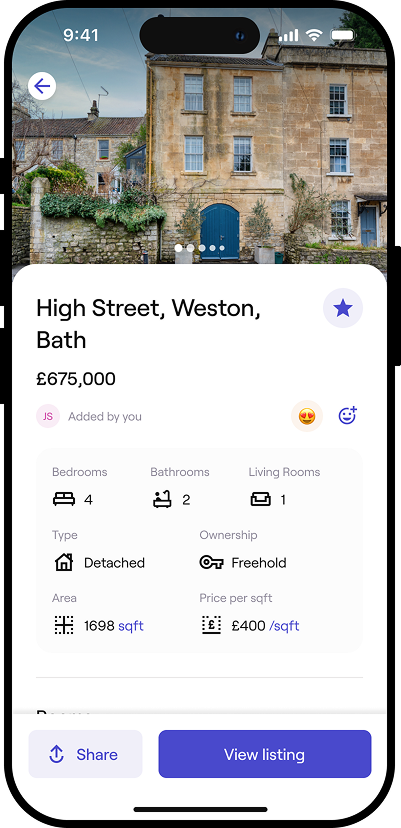5 Things to Check When Buying A Flat
Liv Jacobson is Jitty's resident real estate expert. She was formerly the Head of Sales at The Modern House, one of the UK’s most respected estate agencies, and has a deep understanding of the property market from every angle. Having personally handled the sale of hundreds of homes across London - from first-time buyer flats to complex, architectural one-offs -Liv knows what really happens behind the scenes, how agents think and what buyers often get wrong (or right).

It’s easy to fall in love with a property during a 20-minute viewing. It’s much harder to discover a five-figure repair bill three months into the legal process.
Before you get emotionally invested, you need to get forensic.
This is your pre-offer checklist - the essential due diligence that protects your time, your money, and your sanity by helping you spot the deal-breakers before they become your problem.
If you’re buying a leasehold property, you’re also signing up for ongoing costs that can add hundreds to your monthly bills. Here’s the inside line on what to look for.
1. Service Charges
This is the regular fee for the upkeep of the building and any shared spaces. Think cleaning, gardening, lift maintenance, and building insurance. These Service Charges apply to most flats and some leasehold houses on private estates.
Your job: Ask the agent for the current annual service charge and see the accounts for the last two years. Look for steep, recent increases. You will need to factor this into your monthly costs.
2. Sinking Funds
A sinking fund is a shared savings pot for big, expensive jobs, like a new roof or cladding repairs. A healthy fund is a huge green flag - it shows the building is well-managed. An empty one is a major red flag. If there's no sinking fund, you could be on the hook for a surprise bill of tens of thousands of pounds.
Your job: Ask the agent if there’s a sinking fund and how much is in it. Your solicitor will verify this with the management pack, but finding out early gives you the upper hand.
3. Ground Rent
This is a fee you pay the freeholder for the land your property sits on. While often small, watch out for the trap: escalating ground rent clauses. Some leases, especially on newer builds, include terms that double the rent every 10 or 20 years. This can make a property difficult to mortgage or sell.
A quick legal update: The government, via the Leasehold Reform (Ground Rent) Act 2022, has now banned most ground rents, setting them to zero. The catch is that this only applies to brand-new leases created after June 2022. For almost every existing flat on the market, the original lease - and its potential traps - still stands.
Your job: Ask if there is a ground rent, how much it is, and confirm if - and how often - it increases.
_______
These hidden charges massively impact the true cost of owning a home. While Jitty surfaces this info when agents provide it, most property listings do not include them. The onus is on you to get the numbers from the estate agent. Ask early, ask clearly and be hesitant of moving forward until you do. If you do move forward without having answers to your questions, make sure your solicitor pushes to find these out when you get to the offer stage.
Your Script: 3 Key Questions for the Estate Agent
- “What is the annual service charge and can I see the last two years of accounts?” This helps you spot any steep increases in the building’s regular running costs.
- “Is there a healthy sinking fund?” A healthy savings pot is a green flag. Your solicitor will verify the exact amount later, but the agent should know upfront.
- “Does the ground rent increase over time?” The agent should know this, but your solicitor must confirm the exact terms. An ‘escalating’ clause is a red flag.
‘Run For The Hills’ Costs: Short Leases and Major Works
Beyond the regular running costs are the deal-breakers: the huge, hidden expenses that can turn a dream home into a financial nightmare. Here are the two biggest ones to watch for.
4. Major Works (and Section 20 Notices)
After the Grenfell tragedy, many apartment blocks are now undergoing expensive, mandatory safety upgrades like cladding replacement or new fire systems. These costs are split between the leaseholders and can easily run into five figures per flat.
The key thing to listen for is a Section 20 notice. This isn't just a "conversation about works"; it's a legal notice that a project has been scoped, priced, and is definitely happening. While buyers will try to negotiate the cost off the asking price, it’s a major complication.
5. Short Leases
A short lease is another huge red flag. Here’s the rule of thumb:
- Under 85 years: A warning sign.
- Under 80 years: A serious problem.
Mortgage lenders hate short leases and many won’t lend on them at all. This can turn a property into a "cash buyers only" sale, killing demand and making it hard to sell later. While extending a lease is possible, it is a complicated and expensive legal process.
How to Protect Yourself
At the viewing, ask the estate agent directly:
- “Are there any major works planned, or being discussed?”
- “Has a Section 20 notice been issued?”
- “Exactly how many years are left on the lease?”
Your solicitor will later get the official management pack, which contains the definitive answers. Sometimes even the seller doesn’t know the full details. These details can absolutely make or break a deal, so get the facts early.
Key Takeaways
- Listen for the phrase "Section 20 notice" - it's a legal guarantee of major, expensive works that will be billed to the leaseholders and must be factored into your offer.
- A lease with under 80 years remaining can be very difficult to get a mortgage on, turning a property into a potential "cash buyers only" trap.
- Ask the agent about these deal-breakers at the viewing, but rely on your solicitor's review of the official management pack for the definitive, legal truth.
_______
Finding a deal-breaker three months into the buying process means you’ve wasted thousands on legal fees. Finding one a year after you’ve moved in is much, much worse.
Do the boring homework on these hidden costs upfront. It’s the only way to protect your time, your money and your sanity.
Questions You Might Have
Head down a different street...
Download the Jitty app now
Experience homebuying as it was meant to be.







